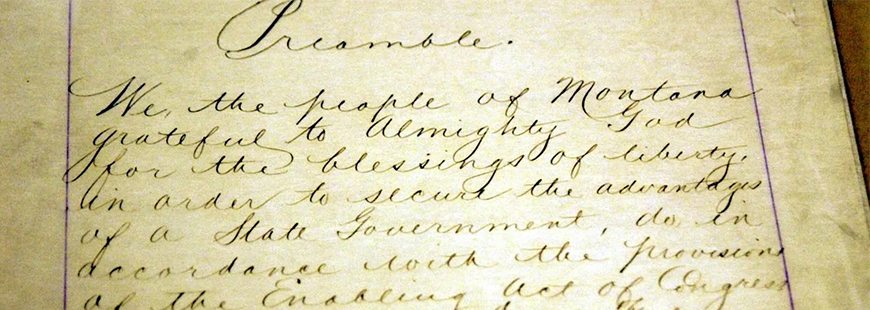II.29. Eminent Domain
Private property shall not be taken or damaged for public use without just compensation to the full extent of the loss having been first made to or paid into court for the owner. In the event of litigation, just compensation shall include necessary expenses of litigation to be awarded by the court when the private property owner prevails.
History
Sources
Drafting
Delegate Proposal No. 75 (Campbell, Murray, James, Heliker, Monroe): Private property shall not be taken, damaged, or the use thereof aired, for public use without the prior payment of just compensation to the full extent of the loss. Prior to the condemnation of any such land, the individual shall have the right to a judicial determination as to whether the contemplated use is necessary and a public use.
Delegate Proposal No. 125 (Cate): Private property, including its inherent environmental amenities, shall not be taken, damaged or impaired by any entity without just compensation.
Bill of Rights Committee Proposal No. 8: Private property shall not be taken or damaged for public use without just compensation to the full extent of the loss having been first made to or paid into court for the owner. In the event of litigation, just compensation shall include necessary expenses of litigation to be awarded by the court when the private property owner is the prevailing party.
Floor Debate. Delegate James moved for the adoption of the committee proposal stressing: “The thrust of the committee effort was to assure the full and just compensation—that full and just compensation be made in all eminent domain actions. Without it, some of the costs of eminent domain action fall where they do not belong—on the person whose property is being condemned.”6 Verbatim Transcript 1825 (March 9, 1972). Delegate Davis moved to amend Section 29 by deleting “having been first made to or paid into court for the owner.” He supported his amendment with his concern that this requirement would delay important state projects following condemnation.6 Verbatim Transcript 1826 (March 9, 1972). Delegate Dahood responded: “[t]he reasons that Delegate Davis has given for deleting this particular language relates to an entirely different problem” and “we have not changed the present system whatsoever insofar as the ability of the State … to start construction [on a project].”6 Verbatim Transcript 1826-27 (March 9, 1972). Delegate Davis then withdrew his motion for the amendment.6 Verbatim Transcript 1827 (March 9, 1972). Delegate Dahood then clarified the meaning of “prevailing party”: “By ‘prevailing party’ I mean, for the record, the property owner, in the event that he is the prevailing party.”6 Verbatim Transcript 1827 (March 9, 1972). Delegate Dahood also clarified that to be “prevailing” in a court challenge, the property owner’s award “has to exceed the offer made by the State of Montana.”6 Verbatim Transcript 1828 (March 9, 1972).
Adoption. After the floor debate, the Delegates adopted the committee proposal on voice vote (none opposed) on March 9, 1972.6 Verbatim Transcript 1828 (March 9, 1972). The Delegates adopted the final draft of Article II, which includes Section 29 on Eminent Domain, 92-3 (5 absent) on March 22, 1972.7 Verbatim Transcript 2933-34 (March 22, 1972).
